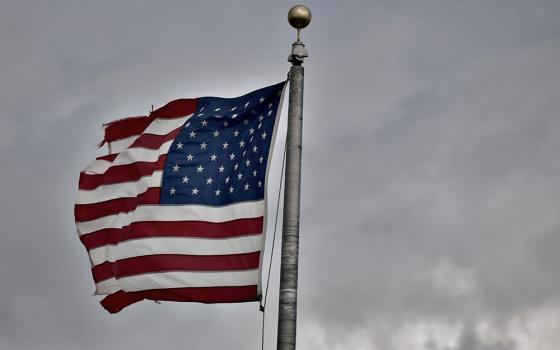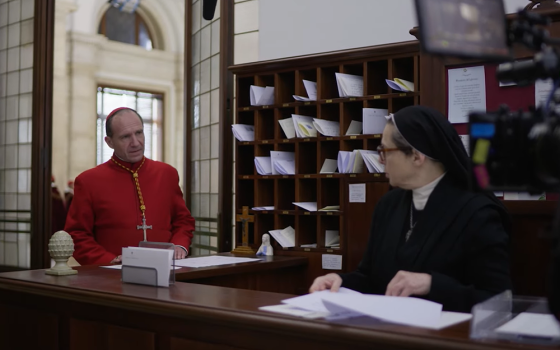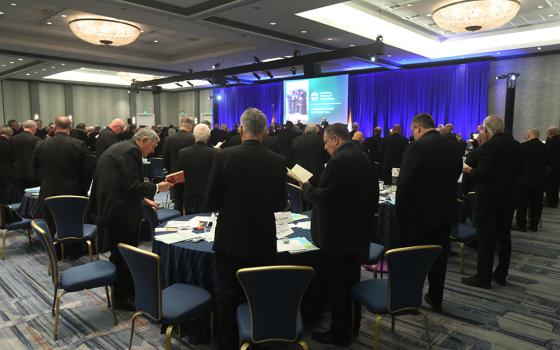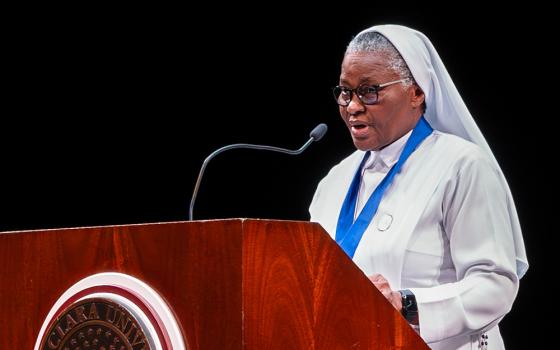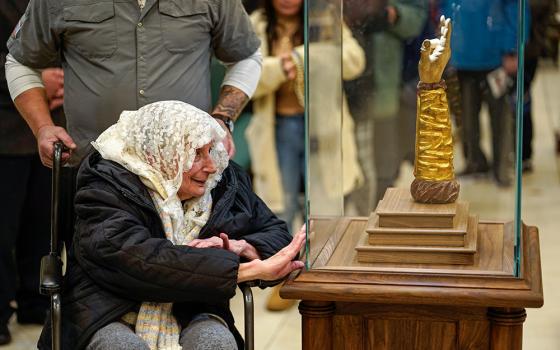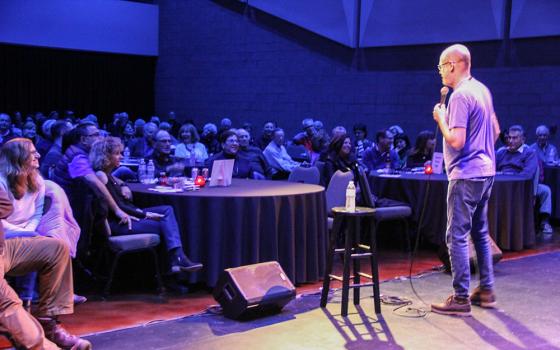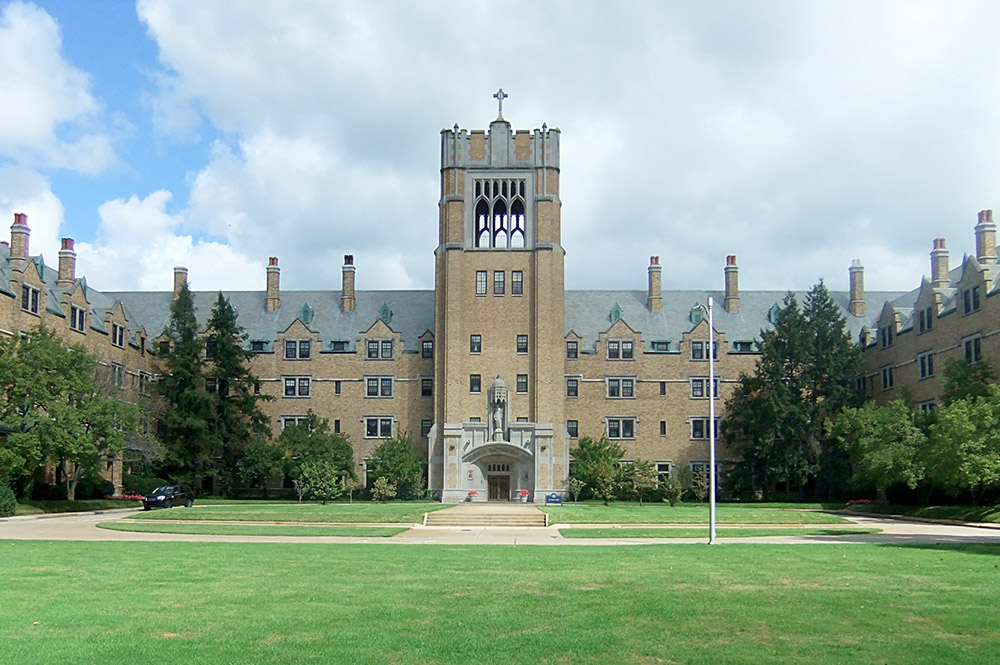
Le Mans Hall on the campus of St. Mary's College in Notre Dame, Indiana, includes administrative offices and a dormitory. (Wikimedia Commons/Jaknelaps)
Editor's note: This article has been updated to include comment from Loretto Sr. Jeannine Gramick.
After criticism of a decision to update its anti-discrimination policy and open enrollment to some transgender applicants, a Catholic women's college in Indiana has announced that it will return to its previous admission policy.
In a Dec. 21 letter, St. Mary's College in Notre Dame said it had viewed the update "as a reflection of our College's commitment to live our Catholic values as a loving and just community."
"It is increasingly clear, however, that the position we took is not shared by all members of our community," said the letter, signed by president Katie Conboy and board chair Maureen Karnatz Smith.
The decision to admit students "whose sex is female or who consistently live and identify as women" made headlines in late November, dividing students and alumnae and prompting a reprimand by the Bishop Kevin Rhoades of Fort Wayne-South Bend, Indiana.
Sophomore Macy Gunnell, who led opposition to the policy on campus through an unauthorized organization for conservative students, told NCR the reversal was "a huge victory for truth and faith, both at Saint Mary's and in our modern society."
"We have shown the world just how powerful our voices can be," Gunnell said in an email interview. "This is a true story of David and Goliath. We hope that this lights a passion in all women all over the nation to stand up for what is rightfully ours."
In the December letter to the St. Mary's community, Conboy and Karnatz Smith said the college will hold a series of online and in-person listening sessions in January "to explore what it means to embrace our values as a Catholic, women's college."
"We recognize that the experience of the last several weeks has been not only trying but also personally painful — for many reasons — for students, faculty, staff, and alumnae," the letter said. "Our deepest hope is for everyone to return in January committed to rebuilding trust and to building a campus that accepts healthy disagreement as part of the value of an academic community. For all colleges and universities, this is a defining challenge of our time."
Advertisement
In November, Rhoades released a statement urging the board to "correct" the broader admissions policy, which he said "departs from fundamental Catholic teaching on the nature of woman and thus compromises its very identity as a Catholic woman's college."
But not everyone is happy about the reversal. Franciscan Fr. Daniel Horan, director of the Center for the Study of Spirituality and professor of philosophy, religious studies and theology at St. Mary's, said he was "disappointed" in the latest decision.
"As a Catholic women's college, we are now the only institution of our peer group that does not welcome trans women into our community," said Horan, citing an Inside Higher Education article that said that of the eight Catholic women's colleges in the U.S., St. Mary's was the last to admit trans women.
"I believe that this reversal of the nondiscrimination policy in fact goes against our identity as a Catholic women's college in the Holy Cross tradition and establishes a policy of discrimination and exclusion rather than the community of inclusion, hospitality and welcome that we say we are," said Horan, who is also a columnist for NCR.
Loretto Sr. Jeannine Gramick, co-founder of the LGBTQ Catholic advocacy group New Ways Ministry, also said she was disappointed by the decision.
"I feel so very sad that a Catholic institution squandered an opportunity to hold up the basic Catholic value of dignity and respect for the human person," she said. "As St. Mary's embarks on a series of listening sessions, how much more fitting it would be to hold up the public statement of what we are trying to achieve: accepting the Gospel principle of respect for the human person."
The Inside Higher Education article also cited research by Jonathan Coley of Oklahoma State University, whose research on how Catholic and Christian institutions address LGBTQ+ issues shows that more than 70% of Catholic institutions promote inclusive gender identity policies, compared to 42% of Protestant ones.
In their letter, Conboy and Karnatz Smith apologized for creating "division where we had hoped for unity."
"Although this has been a challenging time for our community, we believe that the College should continually grapple with the complexity of living our Catholic values in a changing world," the letter said. "But we also believe the College needs to do so as a community. When we disagree, we must strive to preserve the fabric of our relationships. This, at its core, is what it means to be a part of a vibrant Catholic campus in this moment."

